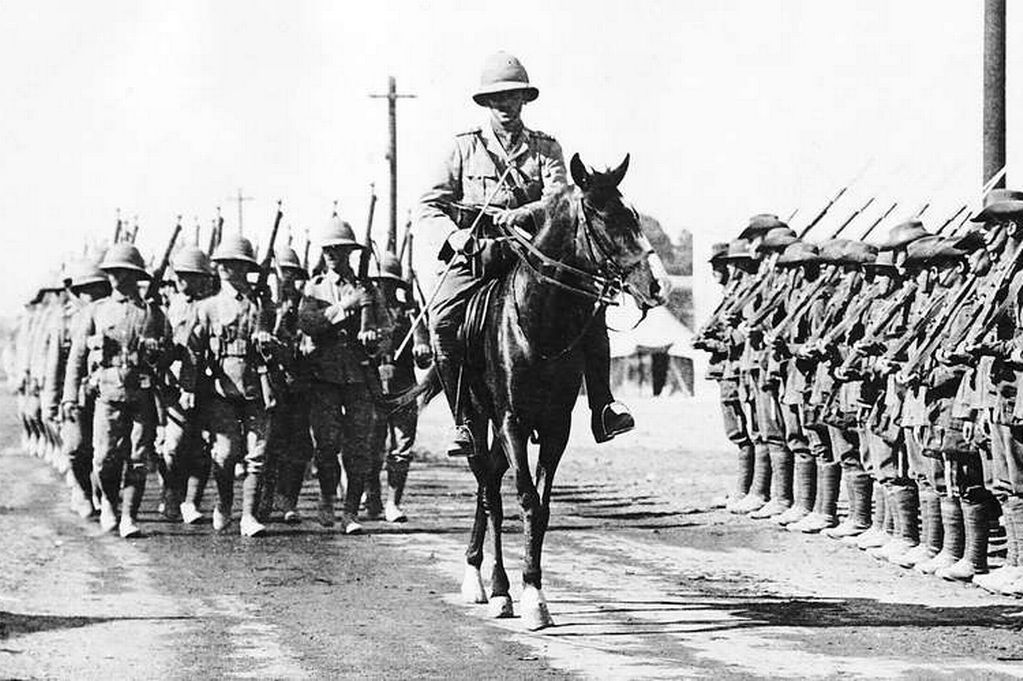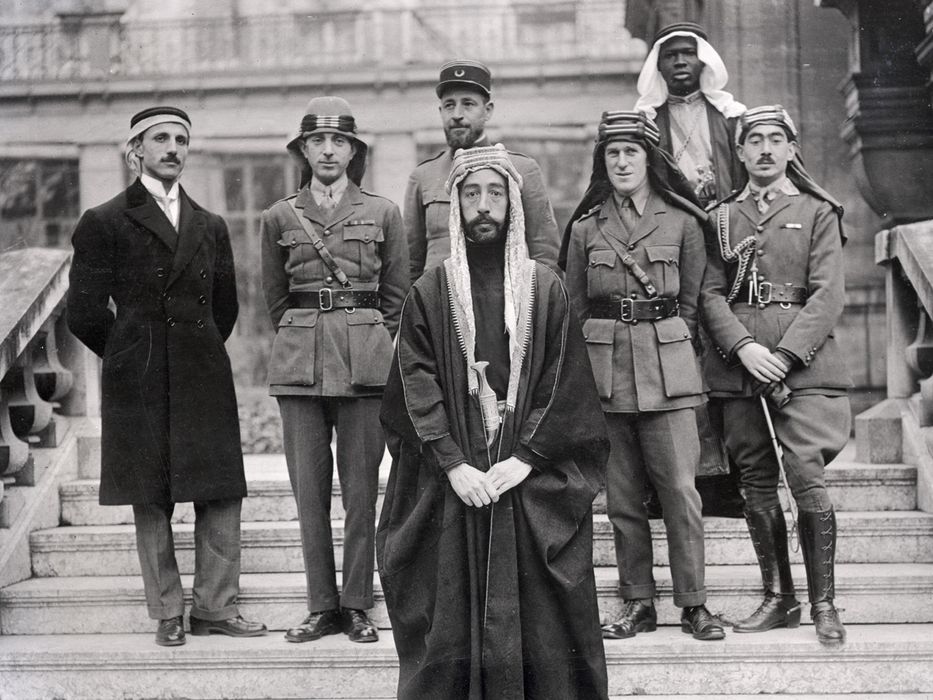Ottoman Officer Surrenders; Tells a Remarkable Tale
Conspirators Plotting the Arab Revolt.
Special to The Great War Project
(22-23 August) War – overt and covert – spreads in the Middle East.
In Mesopotamia (now Iraq) the British offensive to seize Baghdad from Ottoman forces bogs down.
Elsewhere in the Middle East, the British are focusing their attention on Arabia and Syria. The action right now, a century ago, is covert, a spy-versus-spy maze with huge stakes, most of the Middle East for the taking.
A century ago, on these days in the Ottoman trenches of Gallipoli, a young Turkish lieutenant walks across no-man’s-land carrying a white flag. When he reaches the British trenches, he tells them he wishes to surrender.
His name is Mohammed al-Faroki, writes historian Scott Anderson, and he recounts a remarkable story.
“He claimed to be a member of a secret military society called al-Ahd (the Awakening),” according to Anderson.
The group is waiting for the right moment to stage a revolt against the Turks.
Rumors of such groups “had become rather commonplace,” but Faroki brings with him details of the conspirators, “which units they commanded and where they were currently deployed.”
The British bring Faroki to Cairo where he is interrogated by British intelligence there. He tells them they have “squandered a profound military opportunity by not landing at Alexandretta in the spring of 1915.”
Alexandretta is a city on the Mediterranean coast of Syria. There is an enormous debate within the ranks of the British command on whether to take the city, and much to the chagrin of many, the British command decides to forgo such an operation and launch a campaign at Gallipoli instead.
Faroki says he and his comrades assumed the British would go for Alexandretta. The Turks make that assumption, but when they see no such British action, they order the Arab forces stationed at Alexandretta to the battlefront at Gallipoli in northwestern Turkey.
“As a result,” Faroki tells the British,…
“many of the would-be conspirators of al-Ahd now lay dead on the Gallipoli hillsides, killed by the very ‘enemy’ they had hoped to join.”
Faroki has more. He claims to be a liaison between al-Ahd and another Arab secret society, al-Fatat in Damascus. They conspire to join with other Arab leaders on the Arabian Peninsula – most importantly Emir Hussein and his son Faisal of Mecca — to seek British support to launch a revolt against the Ottomans.
But according to Anderson, Faroki tells the British, he and his co-conspirators have demands: “British recognition of an independent Arab nation encompassing virtually the entire Arab world, from Iraq in the east to Syria in the west and extending down to the tip of the Arabian Peninsula.”
The Ottomans have a counter-offer: “Full Arab independence in the postwar era, provided the Arabs lent wholehearted support to the Turkish-German war effort in the meantime.”
“The choice before the British, then, could not have appeared more stark,” writes Anderson. “Come to an agreement with Hussein and his co-conspirators that might paralyze the Ottoman Empire from within, or, conversely, Hussein and the Arabs make their peace with Constantinople, a peace that would undoubtedly result in a reinvigorated call to jihad against the Allies.”
One of the key officials who is tasked with following up on the Faroki story is a young intelligence officer named T.E. Lawrence.
He will become known by later generations as Lawrence of Arabia.


